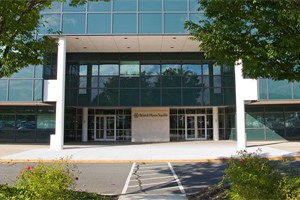 Despite a big setback in first-line lung cancer, Bristol-Myers Squibb’s immuno-oncology flagship Opdivo continues to grow at a healthy lick, topping sales expectations in the third quarter.
Despite a big setback in first-line lung cancer, Bristol-Myers Squibb’s immuno-oncology flagship Opdivo continues to grow at a healthy lick, topping sales expectations in the third quarter.
PD-1 inhibitor Opdivo (nivolumab) brought in $1.27bn in the three-month period – a 38% increase over the third quarter of 2016 that was ahead of consensus expectations – and helped BMS grow its revenues to $5.25bn.
After failing to hit the mark as a first-line treatment for non-small cell lung cancer (NSCLC) there was widespread speculation that Opdivo would lose ground to rival PD-1 inhibitor Keytruda (pembrolizumab) from Merck & Co, which has been approved for first-line NSCLC both as an alternative to and a combination with chemotherapy.
The thinking was that with Keytruda now preferred first-line, Opdivo would struggle to maintain market share in second-line NSCLC but, according to BMS its brand is still leading that market. Growth has also come from a steady stream of new indications, including recent approvals in hepatocellular carcinoma, renal cell carcinoma and colorectal cancer.
“We’re…really pleased about the performance year-to-date on Opdivo and the source of that growth,” said BMS’ chief commercial officer Murdo Gordon on a conference call, pointing to “stable trends” in second-line lung cancer in the US and good growth elsewhere as reimbursement cover comes in, most recently in the UK and Australia.
BMS’ ambitions in first-line NSCLC now rest with the CheckMate-227 trial of Opdivo in combination with its CTLA4 inhibitor Yervoy (ipilimumab), which is due to generate results in the first half of next year. The company is hoping its pairing can do better than the combination of AstraZeneca’s PD-1 inhibitor Imfinzi (durvalumab) and CTLA4 inhibitor tremelimumab, which failed to hit its objectives in the phase III MYSTIC study in this patient group.
“We are also looking forward to seeing data for Opdivo in first-line HCC and for the combination in head and neck and small cell lung cancer next year,” said BMS’ chief executive Giovanni Caforio.
Outside oncology, BMS’ top performer was novel oral anticoagulant Eliquis (apixaban), which grew 39% to $1.27bn, with Caforio claiming it is the most prescribed NOAC in the US, Japan and Canada and leading brand in Germany, the UK and Spain in terms of new prescriptions.




